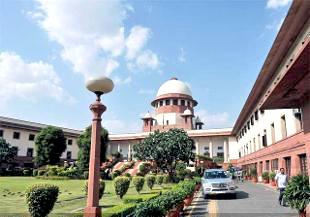New Delhi, Jan 28: The Supreme Court today recalled its December 16 order appointing controversial Justice Virendra Singh, a former judge of Allahabad High Court as Lokayukta of Uttar Pradesh, and named another retired judge as the new ombudsman.

Referring to the objections raised by the Chief Justice of the High Court on the name of Justice Singh, the bench said, "We are now left with serious doubts with regard to the suitability of Justice Singh as Lokayukta."
The bench comprising justices Rajan Gogoi and P C Panta termed as "unfortunate" the inability of constitutional functionaries like the Chief Minister and Chief Justice of HC to arrive at a consensual name for the post of the Lokayukta.
The bench, while recalling its order, referred to an earlier apex court judgment holding that the views of the HC Chief Justice should be accorded primacy in such appointments.
Earlier on December 16 last year, in an unusual order, the apex court had exercised its constitutional authority and appointed Justice Singh as Uttar Pradesh Lokayukta, while expressing dismay that its several orders directing to make appointment to the post had not been "heeded" by the constitutional functionaries -- the chief minister, the leader of opposition and the chief justice of the Allahabad high court.
However, the appointment was later stayed by the apex court itself after it was told by a UP resident Sachidanad Gupta that the state government has played a "fraud upon the apex court" by hiding the fact that the Allahabad High Court Chief Justice had expressed his reservations to the name of Justice Virendra Singh.





Comments
Add new comment